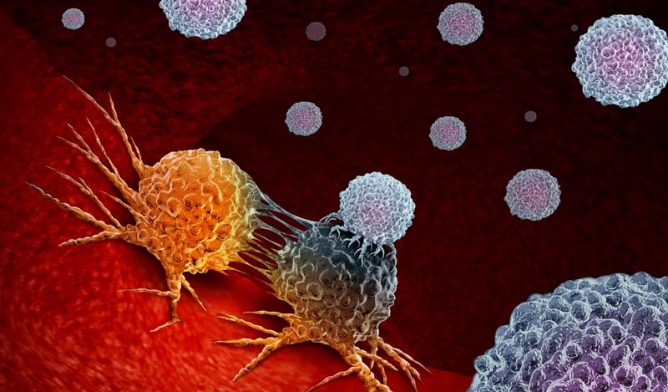NCI Studying New Mesothelioma Immunotherapy Combination
Research & Clinical TrialsWritten by Tim Povtak | Edited By Walter Pacheco

Patients with mesothelioma are being recruited by the National Cancer Institute for a phase II clinical trial using a novel immunotoxin prior to pembrolizumab, a combination that has shown preliminary evidence of efficacy.
This promising mesothelioma clinical trial involves the drug LMB-100, designed to make immunotherapy agents such as pembrolizumab, otherwise known as Keytruda, more effective.
NCI’s trial includes separate cohorts for pleural and peritoneal types of mesothelioma.
“This is a very good option for these patients,” medical oncologist Dr. Raffit Hassan, an acclaimed investigator at the National Cancer Institute, told The Mesothelioma Center at Asbestos.com. “I always try and be a little cautious in raising hopes, but the response rate appears to be better than what you would have expected.”
Immunotherapy Combination Shows Promising Results
Science Translational Medicine, in its July issue, published results of a small, earlier study. Four of the 10 patients who received Keytruda for mesothelioma off protocol after receiving LMB-100 experienced significant tumor shrinkage.
Two of the four were still doing well after more than three years. The median overall survival was 11.9 months.
“We were surprised, especially by one patient who got a complete response. That patient had a lot of disease,” Hassan said. “But he is doing really well. Very encouraging.”
The study was originally designed to find safe dosage levels of LMB-100 and measure its anti-tumor activity.
It was accompanied by a study in mice that showed mesothelioma tumor shrinkage was greater when receiving both Keytruda and LMB-100, in contrast with receiving only one of the drugs.
“The future of mesothelioma treatment is in combination therapy using drugs such as Keytruda with other agents that boost the immune response against the tumors,” Hassan said.
Improving Keytruda Effectiveness with LMB-100
Keytruda has been approved by the U.S. Food and Drug Administration for use with different cancers, but its effectiveness alone with mesothelioma has been marginal, with less than a 20% response rate.
LMB-100 was designed to broaden its effectiveness. Dr. Ira Pastan, a scientist at the National Cancer Institute, led the drug’s development in targeting the cell-surface protein mesothelin, which is highly expressed by several cancers, including mesothelioma, pancreatic cancer and ovarian cancer.
Training the immune system to identify the protein and attack the cancerous cells is the goal.
The ongoing NCI clinical trial is for patients with inoperable disease and confirmed epithelial or biphasic types of mesothelioma cells.
Patients will be receiving LMB-100 intravenously on days one, three and five of two 21-day cycles. Beginning with the third cycle, they will receive Keytruda on day one of each succeeding cycle for up to two years.
NCI Exploring Other Drugs
LMB-100 is designed to bind to the tumor cells that have the mesothelin protein, kill them and help Keytruda work more effectively through the use of a patient’s own immune system.
It is one of the drugs that Hassan and the NCI are exploring for use in combating mesothelioma by targeting the surface protein mesothelin.
Hassan is also the principal investigator of other clinical trials that include:
- A phase I clinical trial to evaluate the safety and anti-tumor activity of Bay2287411 in patients expressing the protein mesothelin.
- A phase I/II clinical trial of genetically engineered T cells expressing a single-domain antibody that recognizes mesothelin.






